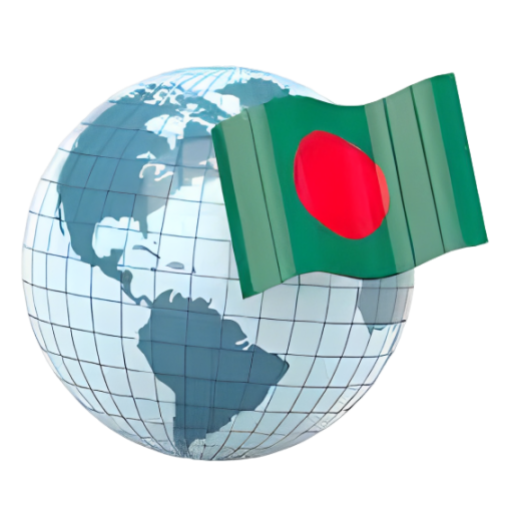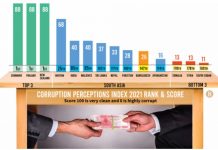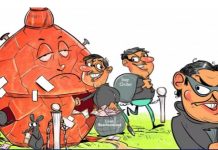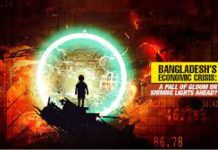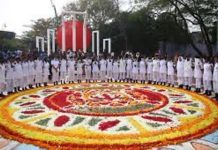Dr. Jamal Uddin, now a well-established physician in Canada, was involved in the 1952 language movement as a young man. The roots of 1952 were ingrained in the Two-Nations Theory that was a dominant factor in the partition of India in 1947. Dr Jamal Uddin recalls: “many (but not all) of our West Pakistani friends at school had an air of arrogance since they came from well-to-do backgrounds and their fathers held coveted jobs in the Government. On balance they seldom made an effort to integrate with us although there was never a lack of co-operation from our end. We felt like strangers in our own homeland. The seeds of discontent were sown long before 1952.”

Dr Jamal Uddin
The Muslim migrants from West Bengal were at another extreme. They simply took the cultural scene one step ahead with activities that were not in vogue at the time. Tagore was soon to become an integral and defining part of our cultural identity.
In 1952, Dr Jamal Uddin was a student of Dhaka Medical College. When he came to Dhaka, his childhood friend, Quayyum Chowdhury and he knew almost nobody. They soon came into contact and later became good friends with people like Zainul Abedin, Munir Chowdhury, Hasan Hafizur Rahman, Borhan Uddin Khan Jahangir, Murtaza Basir, Abdul Gaffar Chowdhury, Alauddin Al Azad and Poet Shamsur Rahman. Through his elder brother, who became a distinguished banker, he came to know Kalim Sharafi, Sardar Fazlul Karim, Khan Sarwar Murshid and others. All of them learned a lot from their endless ‘addas’ (pastime gossips). At the time, none of them were aware of the impact their friends would make on 1952 and later 1971. But one thing was evident, East Pakistan was developing a unique cultural identity.
A storm was brewing and finally on 21st February it erupted. He said, “I watched people from our hostel compound. They were mostly students in small groups carrying banners and shouting slogans. They gathered around the Provincial Assembly building, close to our hostel. We decided to join the protesters”.
“But the dreaded gun shots took us back to the hospital”.
“The brutality of the death stunned even our trained medical eyes. We were used to confronting death by illness or by accident, but not by such ruthless and hostile acts. The asphalt of the Ramna that day was soaked with the blood of heroes and the tears of many that were to lay the foundation of bigger sacrifices that were to come in the future”.
There were many factions with different and opposing political ideologies. All of these diverse factions came together to a common platform through the Language Movement. The denial of the right to our language by a distant minority was a form of subjugation that was intolerable. So, the generation responded in the best way they knew.
The Two-Nation Theory did not take too long to prove its emptiness. He said, “Our generation split open the politically convenient and illogical concept of an accommodation that was blind to cultural differences. We strongly felt we were the colony of the ‘elites’ of West Pakistan. Our only common link was the ‘convenience’ of religion”.
1952 was the beginning of a new beginning. Dr Jamal Uddin’s generation addressed the cultural inequalities they confronted. The next generation took the struggle one notch higher to create a place we could finally call home, Bangladesh.
As Dr. Jamal said, “I left my country in 1959 and came to North America. Even after all these years, it seems to me that the job is far from being over. What has been achieved with blood, sweat and tears must not and cannot slip away. As I slowly see our generation fading into oblivion, I can only ask the new generation of Bangladesh with hope. I was born in British India and grew up in Pakistan. When I first returned, it was Bangladesh. Ours is a generation that experienced the sweetness and bitterness of change. We often paid very high prices to resist unjust situations we found ourselves in. As the generation that will take Bangladesh forward in the beginning of the next millennium, all we ask is you address the economic and social inequalities that still plague this wonderful land of ours that always has and still seems to hold potential. What we started is only a beginning. The end lies in your hands. The story of 1952 still continues.”
Currently retired, Dr. Jamal is a Fellow of the Royal College of Physician. He is an Internist and Rheumatologist. He was born in Hatiya, Noakhali. His education was in Chittagong, and Dhaka Medical College. He was actively associated with literary circles of his time, and a poet himself. He left Bangladesh for Canada in 1958 and settled there.
Having written poems in his native language during his college and medical school days, Dr Jamal has published poems in magazines and in the anthology on the Bangla Language Movement, titled, Ekushe February (21st February). Dr. Jamal also writes poems in English; his most recent English poetry appeared in 2016 PFI anthology, A Heart of Fire, A World of Ice. A collection of his 70 English poetry, titled, Portal, was published in 2017. Professor Mohitul Alam translated Dr Jamal’s 53 English poetries in Bengali, published under the title, Kalantare Boshobash (Living in Different Times).
This was first published in The Daily Star, 15 March, 2009

Asrar Chowdhury is a professor in Economics at Jahangirnagar University. He has been contributing to The Daily Star since 1993/94. He is the author of the popular column, Echoes in Shout of The Daily Star.
